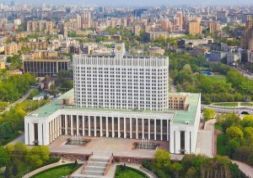New Rules of the Game for Arbitral Institutions in Russia
The new Russian Arbitration Law has already been in force for eight months. One of the most significant changes that the new Law introduced concerns the authorisation requirement for arbitral institutions.
At the beginning of May 2017, the Government of the Russian Federation released its first decision on the granting of authorisation to act as a permanent arbitral institution (“PAI“). This post reports on the governmental decision and looks at its implications for arbitration practice in the country.
New Requirements for Permanent Arbitral Institutions
The new Russian Arbitration Law provides that only non-profit organisations can establish a PAI ie a subdivision of a non-profit organisation performing the functions of the administration of arbitration on a permanent basis, as opposed to ad hoc arbitration.
Such non-profit organisations shall obtain authorisation from the Russian Government that is granted by the Ministry of Justice based on a recommendation from the Council of Development of Arbitration.
online pharmacy https://www.3-dmed.com/wp-content/uploads/2022/09/jpg/zoloft.html no prescription drugstore
There are several requirements for an arbitral institution to be considered by the Council, inter alia:
- compliance of the arbitration rules and recommended list of arbitrators with the requirements of the new Law; and
- good reputation of a non-profit organisation (in particular, the identity of its founders, as well as whether its activity aims at the promotion of arbitration and ensures a high standard of arbitration).
Notably, the two oldest Russian arbitral institutions – the ICAC (MKAS) and the Maritime Arbitration Commission (MAC) at the Russian Chamber of Commerce and Industry – are exempted from the requirement to apply for governmental authorisation.
Russian Government Recently Granted Its First Authorisation
On 3 May 2017, the Russian Government released its decision dated 27 April 2017 to authorise two Moscow-based non-profit organisations to perform the functions of a PAI. These two organisations are the Russian Union of Industrialists and Entrepreneurs (“RSPP“) and the Institute of Modern Arbitration. RSPP was established as a non-political organisation shortly before the collapse of the USSR “to protect the interest of industry at a time of fast and large-scale transformations in the state’s politics and economy”.
The Arbitration Centre at the Institute of Modern Arbitration was established in August 2016 at the initiative of the Russian Federal Chamber of Attorneys and Saint-Petersburg International Legal Forum. The main goals of the Arbitration Centre include facilitating professional, efficient and impartial resolution of disputes of any complexity in strict compliance with the new Russian arbitration procedures. Its rules are available in English and Russian. The Arbitration Centre also actively takes part in promoting arbitration in Russia via organising and holding educational and practical conferences and seminars (see recent conference report by CIS Arbitration Forum).
Practical Implications for Arbitral Proceedings
The new Law presupposes that only PAIs may administer the arbitration of certain disputes such as corporate disputes, as explained below. Therefore, obtaining governmental authorisation implies considerable advantages of PAIs over ad hoc arbitration.
Arbitration of Corporate Disputes
As noted above, only PAIs can administer corporate disputes that became arbitrable as a result of the arbitration reform. The new Law also requires that PAIs administer this type of arbitration according to special rules for certain types of corporate disputes (mainly so-called “internal corporate disputes“). Some arbitral institutions have already developed and adopted arbitration rules for corporate disputes.
online pharmacy https://www.3-dmed.com/wp-content/uploads/2022/09/jpg/zovirax.html no prescription drugstore
For example, the ICAC has a separate set of rules for corporate disputes, and the Arbitration Centre at the Institute of Modern Arbitration has rules for corporate disputes as a part of its 2017 Arbitration Rules (Chapter 8).
Waiver of the Right to Annul Arbitral Award
Another change that the new Law implements is the parties’ option to exclude recourse to state courts at the seat of arbitration for the annulment of the arbitral award. Before the reform, it was expressly allowed only in domestic arbitration. Now this option has become available in any arbitral proceedings (both domestic and international) administered by a PAI – the parties may conclude an express agreement (ie included in the arbitration clause) on the finality of the arbitral award.
Judicial Assistance of State Courts
Parties to arbitration can apply to state courts for judicial assistance on certain procedural issues. For example, Russian state courts at the request of the parties can assist in taking evidence for arbitral proceedings, eg order production of documents. According to the new Law, only parties to an arbitration administered by a PAI can make use of this mechanism.
online pharmacy https://www.3-dmed.com/wp-content/uploads/2022/09/jpg/ivermectin.html no prescription drugstore
Concluding Remarks
Looking at this development from a general perspective, it is a huge step forward towards building a professional and efficient arbitration framework in Russia. However, the road is long and much is expected not only from arbitral institutions, but also, no less importantly, from state courts and the arbitration community in general. Hopefully, other Russian arbitral institutions will follow the lead of pioneer arbitration centres and also contribute to forming a comfortable and independent dispute resolution environment in the country.












